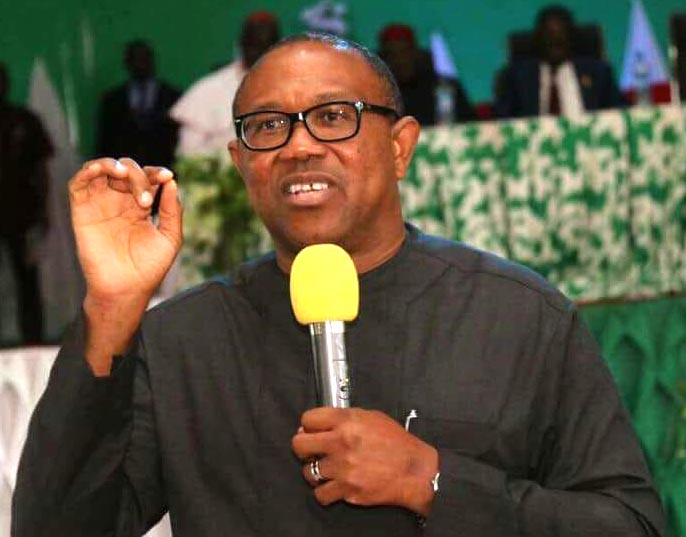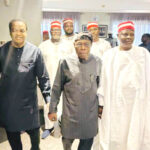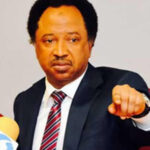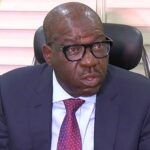On the side of party structure is history, time, constant funding, add illiteracy and poverty, and the cognitive bias by which human beings are naturally resistant to change or adopting new things out of the blues. The Obi phenomenon can give it a good try, but I believe this kind of coup requires the investment of time to show how serious you are.
He has a couple of real disadvantages that may reduce how far his wildfire may go at first try. One of those is the naivety of most of his supporters whose newness in political excitement they have interpreted as the right to bully others who may not have seen the ‘light’.
I’ve seen folks lately who repented from their brief spell of Obiism after careful consideration away from the gaslighting. Some have decided to stay away entirely having not found anyone who caught their fancy. Another downside is that Obi has only borrowed a political party, which comes with a baggage. This means that he is likely to hop off if he doesn’t win, when glory may be only at the end of another four years of investment of time, intellect, heart, perseverance and money.
I know that he does give ‘shishi’, contrary to the thinking of his wild young followers. He has to be ready to give a lot more ‘shishis’ that may end him up in the realm of the same old politicians that we like to blame for Nigeria’s ills. For it takes billions of shishis to gain the attention of hungry, deprived folks all over Nigeria.
Democracy is indeed expensive everywhere in the world. I read one disgruntled labour leader saying that existing labour leaders in Nigeria are APC members and I did a double-take. That must indeed be true. How do you attain labour leadership without being corralled into the ruling party? You will even join willingly. Government must have you on-side. Those guys are unlikely to go out of their ways to mobilise for our man.
We tried to build party structure in the party that I led and co-formed (ANRP – Abundant Nigeria Renewal Party), starting from December 2016. But I realised early on the limits of youth power as we had envisaged. We couldn’t drill below state level, and only in a few states, we managed to create LG structures. We couldn’t show much presence at the ward levels. Many of the guys who accepted positions at federal, state and LG levels, upon whom we relied for sacrifice and mobilization, simply did not show up for work.
Mobilizing funds for staff was a job of work. We sometimes got some financial support from Diasporan guys and just a handful of locals. The vast majority were either silent, unsupportive at this level, or indeed needy—such that we had to support them. I did an article years ago about how much money is needed to sustain party meetings at every level for a considerable period of time so as to really cause a revolution. See here https://opinion.premiumtimesng.com/2019/06/21/how-much-money-do-we-need-for-a-political-revolution-by-tope-fasua/.
For you cannot tell a village carpenter or market woman to leave their duties for a whole day to come and listen to a messiah for free when their survival is daily. So, money is important in building structures. You must give shishi. At best, you assemble very kind people but must feed them and buy them drinks or pay their transport. That costs good money (and you will usually be cheated by the same Nigerians shouting ‘The messiah has come!’). Yet this must be sustainable over at least four years to grab their attention.
Everybody is looking for a better life. So, they want to put a party in power that will come back to them and favour them, give them positions and make life better.
You have to be able to fund party offices at these levels. Ten thousand wards, 774 local governments, 36 states and the FCT. You may get donations but that cannot cover all. Conflicts must arise as to who contributes more and who gets more benefits which must be urgently resolved.
For a small party such as ours, some of these issues were almost insurmountable. A presidential candidate cannot ignore the state of his party – except you want to be a Buhari, a dissembler. Before election day, your electoral representatives (hundreds of thousands of them) must undergo training, which needs to be paid for.
On election day, you need at least two people in 178,000 polling booths. The going rates in 2019 for effective parties was N5,000. That is almost N900 million in one day for only the presidential election. We had an experience at the 2018 Ekiti guber elections in ANRP where our electoral officers, who should man the polling booths, abandoned their jobs and went chasing more money from those who paid higher. In fact, on that day, many Nigerians votes multiplied for different parties. They have to go home rich that night.
The atmosphere on election day is different. Outside the main cities, any prim and proper person sticks out like a thumb and has to scurry home else meeting with maiming or worse. Even the security services are in on it. So, it begins to look like an outsider like Obi is on a self-delusion. In the South-East, though, if elections are not disrupted, another Nigerian reality will work for Obi. Southeasterners will rally behind their son, certainly. He can make a statement there.
In the final analysis, the same issues Obi has tried to avoid by defecting from the PDP will still confront him. He has to invest at least another four years. See how long Buhari had to try (and he doesn’t have money). Obi has to maintain his Nigerian-ness and encourage his supporters to remain Nigerians—not something else if they lose the elections.
He has to basically take ownership of his political party and show that he is an administrator, working with his chairman. The presidency is not a 100-metre dash. Or is it? He must have to engage increasingly with the grassroots by knowing those 10,000 wards and his message to them cannot be about China, Bangladesh, Egypt and the rest.
He must have to understand that no elite in Nigeria can be exonerated from the historical fact of our people’s perennial, generational and multidimensional poverty and illiteracy – least of all himself, an importer/banker/billionaire. And he will have to give more than a shishi.

 Join Daily Trust WhatsApp Community For Quick Access To News and Happenings Around You.
Join Daily Trust WhatsApp Community For Quick Access To News and Happenings Around You.


